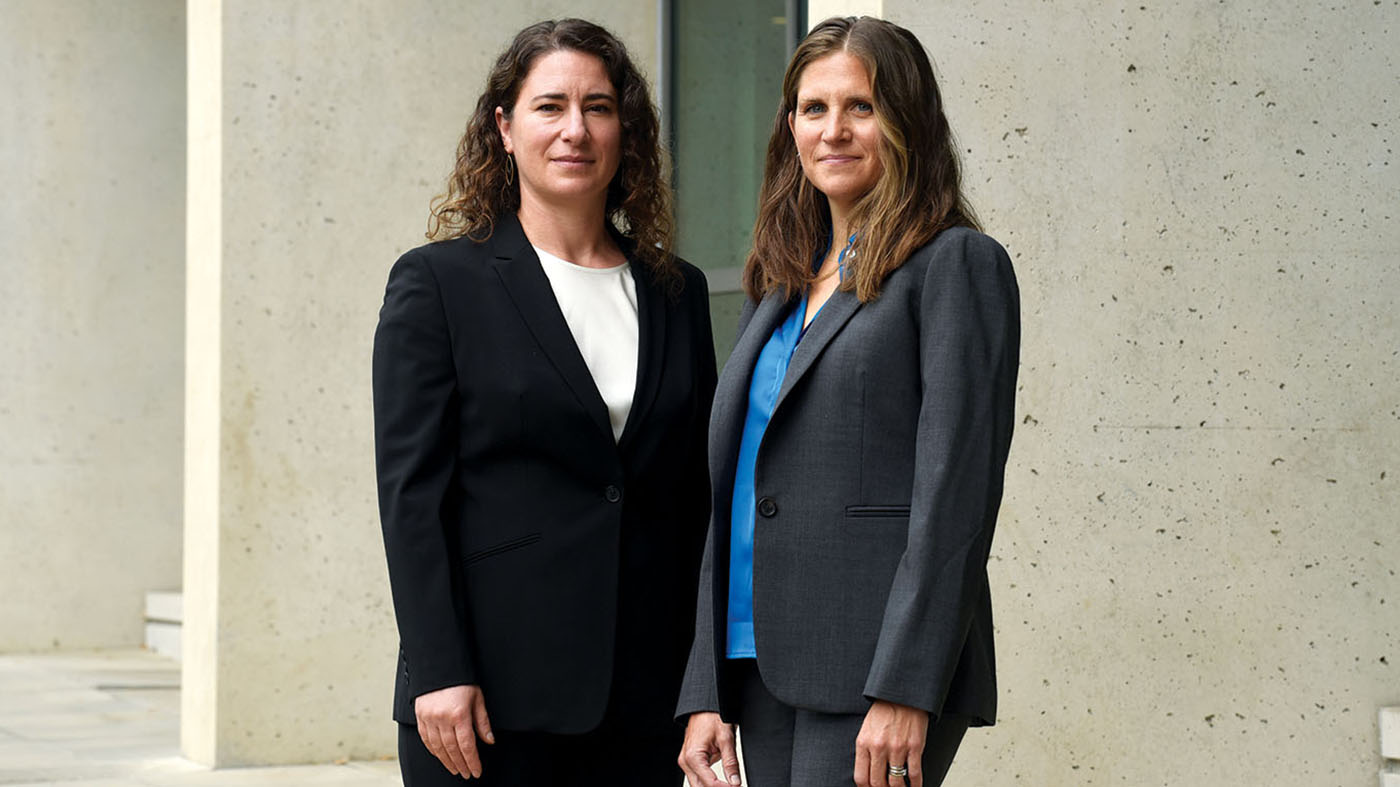Last week, the Center for Civil Rights and Critical Justice at Seattle University School of Law filed amicus briefs supporting court challenges to the constitutionality of Trump Administration executive actions targeting birthright citizenship and several law firms.
“The Center for Civil Rights and Critical Justice is dedicated to challenging abuses of power that violate the Constitution and that are aimed at oppressing and marginalizing people and communities who have historically lacked political power,” said Center Co-Directors Melissa Lee and Jessica Levin, who are both professors of law.
On April 11, the Center, along with the Asian American Legal Defense and Education Fund (AALDEF) and the Fred T. Korematsu Center for Law and Equality at the University of California Irvine School of Law, filed an amicus brief in a lawsuit, brought by Washington Attorney General Nick Brown and the attorneys general of Arizona, Illinois, and Oregon, challenging the Executive Order on Birthright Citizenship issued by President Donald Trump. The Center and its co-counsel were joined by an additional 82 interested parties, including nonprofit and grassroots organizations and race and law centers.
The brief, filed in the United States Court of Appeals for the Ninth Circuit, reminds the court of the country's problematic history of revoking citizenship status based on race or national origin, warns the court about the potential for this executive order to be used retroactively, and highlights the lived experience of individuals who know what it’s like to grow up without status. The brief argues, “Once that threshold constitutional foundation of birthright citizenship is eliminated, it is all too easy to imagine the government taking the next step and trying to strip citizenship retroactively from those who were born on U.S. soil before February 19, 2025.”
Lee and Levin said, “The new administration’s attack on birthright citizenship is a dangerous escalation in its war against immigrants, signaling that even citizens born in this country are not safe if they do not fit into the administration’s view of what it means to be American.”
On Wednesday, the Center partnered with the Korematsu Center and two law professors to represent a group of 16 interested organizations comprised of labor unions, civil rights organizations, and additional centers on race and the law, to file an amicus brief in the case brought by Perkins Coie challenging President Trump’s executive order targeting the law firm.
Their brief focuses on protections under the First Amendment to engage in litigation against government action. The brief points to similar efforts in the past, including southern states' attempts to interfere with school desegregation efforts, arguing that "the [executive orders] mirror earlier, unconstitutional attempts by governments to suppress disfavored legal arguments by targeting the lawyers who made them." The brief also sounds a “cautionary note about the government’s casual and unsupported invocation of national security to justify the substance of the executive orders."
The Center and its partners also filed their brief in similar cases brought by two other law firms, Jenner & Block and WilmerHale, on April 16.
“These cases underscore the importance of First Amendment protections for cause-related lawyering and the dangers of executive overreach,” Levin said.
About the Center for Civil Rights and Critical Justice
Established at Seattle U Law in July 2024, the Center works to achieve a legal system where both historical and present-day racism, oppression, and marginalization no longer control outcomes or otherwise contribute to inequality. The Center educates future lawyers to be agents for social change and racial equality in all areas of the law, advocates for advancement of the law to achieve equal justice, and produces research to drive effective reform by revealing systems of oppression and exclusion.
Read the full amicus briefs here.

